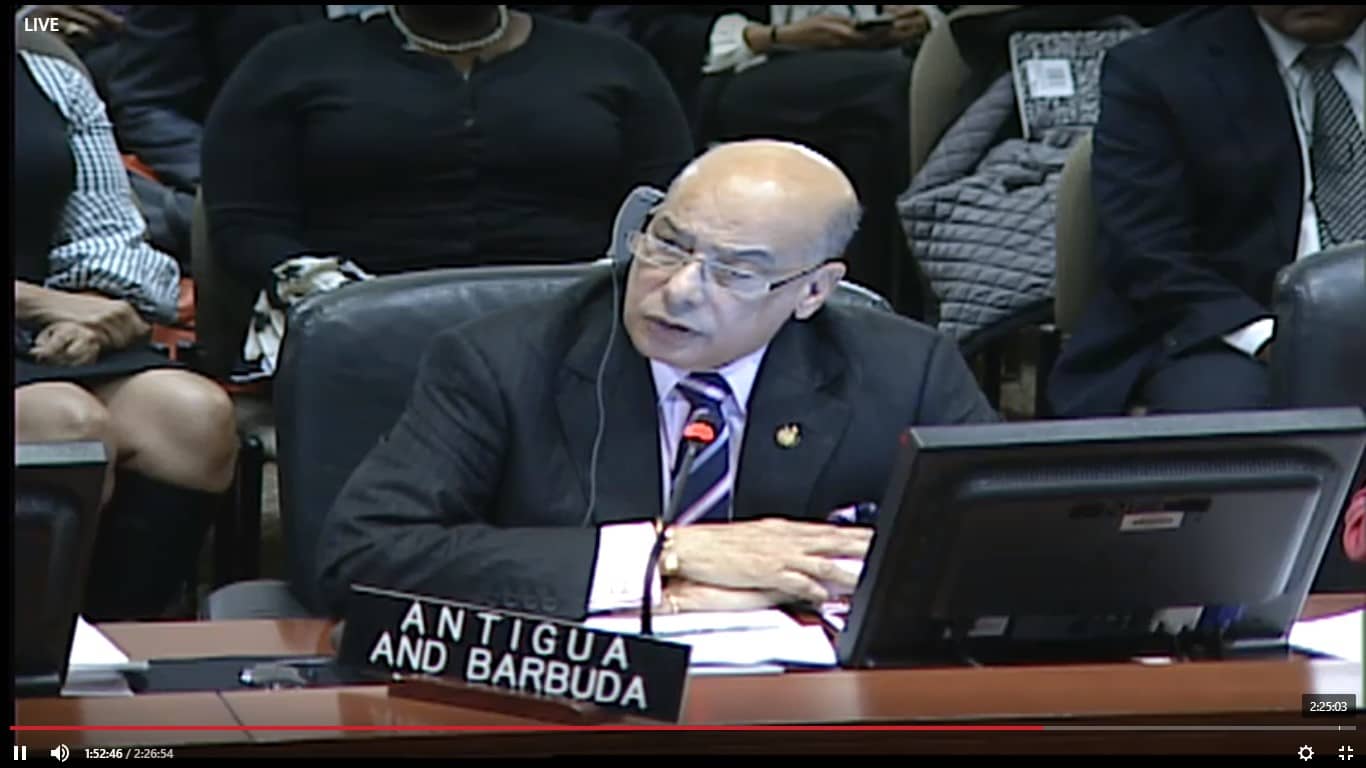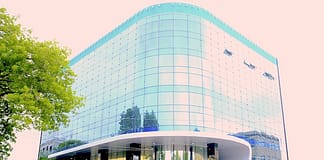
By Sir Ronald Sanders
(The writer is Ambassador of Antigua and Barbuda to the United States and the Organisation of American States. He is also a Senior Fellow at the Institute of Commonwealth Studies at the University of London and at Massey College in the University of Toronto. The views expressed are entirely his own)
The image and standing of Guyana are being tarnished throughout the world. Yet, a small window of opportunity remains open for the country to be regarded as democratic and for its government to be hailed as legitimate.
All the players in Guyana – the political parties and their leaders, the Guyana Elections Commission (GECOM), the Judiciary and civil society groups – should work toward that noble goal. For if Guyana is not respected internationally as a democratic state, and its government is not seen as credibly elected, it will be isolated from regional, hemispheric and international activity that will hurt its people irreparably.
The first indication of the gravity with which the international community regards Guyana’s situation was given by the Commonwealth of 55-nations on April 2, exactly one month since the general elections were held on March 2 without a declared result.
Through the Ministerial Action Group (MAG), its watchdog for abuses of human rights and democracy, the Commonwealth “strongly iterated that any Government which is sworn in without a credible and fully transparent vote count and tabulation process would lack legitimacy”. And they “called upon the GECOM to immediately fulfil its constitutional mandate and ensure the sovereign right of the people of Guyana to duly elect their Government is respected through a transparent and credible counting and tabulation process”.
While offering “to provide assistance to ensuring a credible and transparent conclusion to the electoral process in accordance with the will of the people as expressed on 2 March”, the Commonwealth Ministers were clear that, were it to become necessary, they would “convene an extraordinary meeting to discuss the situation and explore appropriate options”. Take that to mean exclusion of Guyana from the Commonwealth.
The Commonwealth action would be replicated by the Organisation of American States (OAS) and the European Union. Collectively, the member states of these three groupings represent Guyana’s major trading partners, and the countries that provide it with access to the global trading and financial system. Practically, they could cripple Guyana, and its “sovereignty” – much proclaimed over the last month by those who reject the concerns of the global community – would be meaningless. That “sovereignty” would not save Guyana from sanctions bilaterally applied by the powerful countries, international organisations and financial institutions with the capacity to do so.
What would be the benefit to Guyana, as a nation, or to its people as individuals, for such a scenario to unfold? Neither those courting sanctions nor those urging their application would gain in any way. Far better for all players to uphold the principles and values enshrined in the nation’s Constitution and in the Charters of the Commonwealth, the Inter-American System and the Caribbean Community (CARICOM) to which Guyana is a signatory.
By doing so, GECOM would order a recount of all the votes cast under the supervision of a high-level CARICOM team, consistent with the Agreement of March 16, signed by President David Granger and Opposition Leader Bharat Jagdeo. The result of the elections would then be credible to all – domestically, regionally and internationally. Then, a much needed Government could be established to get on with looking after the wellbeing of the Guyanese people, especially now when the country, like all other nations, is gripped by the deadly tragedy of COVID-19 and urgent measures are required to save lives.
Incidentally, in playing a role in Guyana’s elections, CARICOM is doing no more than carrying out the requirements of the Revised Treaty Chaguaramas (the CARICOM Treaty), by which, in its preamble, CARICOM governments accepted their various agreements based, in part, on the Charter of Civil Society which the Conference of Heads of Government adopted on 19 February 1997.
At Article VI, under heading, “Political Rights”, the Charter states that “The States shall ensure the existence of a fair and open democratic system through the holding of free elections at reasonable intervals, by secret ballot, underpinned by an electoral system in which all can have confidence and which will ensure the free expression of the will of the people in the choice of their representatives”. The language could not be clearer.
CARICOM’s role is not “interference” in the domestic affairs of a foreign country; it is participation in “community affairs” which is the essence of the revised CARICOM Treaty and the Charter of Civil Society that preceded it. It is often overlooked that “CARICOM” is the acronym for “Caribbean Community”. And, by helping Guyana to maintain its democracy, CARICOM nations would also be strengthening their own collective standing as proud democracies where human, political and civil rights are preserved, protected and promoted.
It is also significant that the Commonwealth Ministers in their April 2 statement “encouraged CARICOM to remain seized of the situation in Guyana”. The Commonwealth recognised that CARICOM, more than any other body, has a clear right to be involved in Guyana.
What Guyana must remember is that its leaders were among the key founding fathers of CARICOM, of “Caribbean Community”, of regional integration and of all that comes with it. No one played a greater role in its creation than Guyana’s first independence Prime Minister, Forbes Burnham. Every Head of Government of Guyana since then, including the present Opposition Leader, Bharat Jagdeo, has remained faithful to it.
CARICOM still has a role to play in supervising a transparent recount of all the votes of March 2nd so that a credible elections result can be declared acceptable to all. It owes it to itself as much as to Guyana to play that role.
It was not by chance that the Commonwealth and the OAS both appointed two former Prime Ministers of Barbados and Jamaica to lead their Elections Observation Missions. Neither Owen Arthur nor Bruce Golding would have anything but Guyana’s best interests at heart.
If Guyana’s leaders fail to take advantage of this narrowing window of opportunity to produce a credible elections result, certified by CARICOM, it will have closed every chance to maintain its democracy. Worse it will itself invite the sanctions that will certainly come and the ostracization and pain that will follow.
CARICOM should help, but Guyana must save itself.
Advertise with the mоѕt vіѕіtеd nеwѕ ѕіtе іn Antigua!
We offer fully customizable and flexible digital marketing packages.
Contact us at [email protected]
















